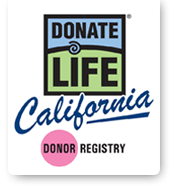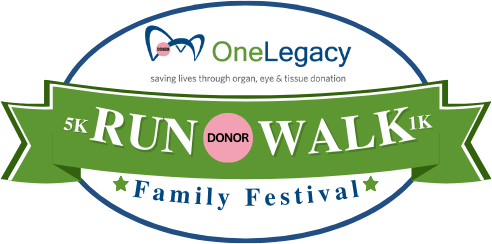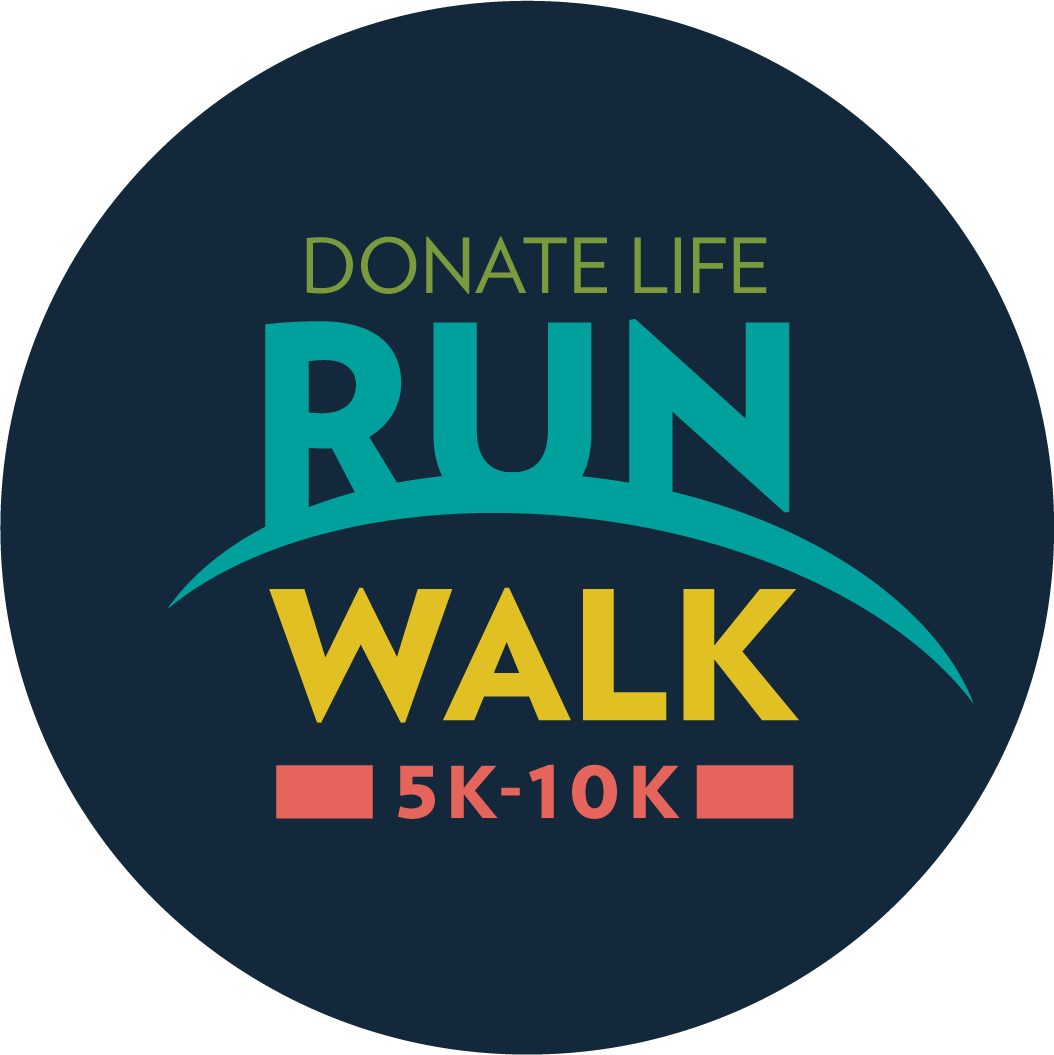National Minority Donor Awareness Week, the first week of August each year, is a nationwide observance to honor the generosity of multicultural donors and their families, while also underscoring the critical need for people from diverse communities to register their decision to Donate Life as organ, eye and tissue donors.
Although it is possible for a candidate to match a donor from another racial or ethnic group, transplant success rates increase when organs are matched between members of the same ethnic background. Consequently, a lack of organs donated by multicultural populations can contribute to longer waiting periods for transplantation.
Why Minority Donor Awareness Matters
One of the reasons why minority donor awareness is so important is over half of those on the organ transplant waiting list are minorities. At the same time, only just over 30% of donors are minorities. Additionally, over 70% of those waiting for a lifesaving kidney transplant are of a minority background.
We’re hoping to increase minority donor awareness to answer questions different individuals have about becoming a registered organ, eye and tissue donor. And to share with them the impact their choice to become a donor can become.
For more information on minority donor awareness and how the donation community celebrates National Minority Donor Awareness week each year visit the Association Multicultural Awareness in Transplant who sponsors the event each year.
Stories of Hope
Brittany’s generous gifts saved the lives of four people and led to her parents starting a foundation in the Bay Area to educate the African American community about the need for organ and tissue donation and transplantation. Read more…
AJ Reyes
Heart Recipient
A rare viral infection had destroyed AJ Reyes’ heart and he needed a transplant. Whether he lived or died became a waiting game. His own mother, a nurse and educator, was convinced AJ wasn’t going to make it; a mechanical heart was the only thing giving him a bit more time. Read more…
 Erick Peña
Erick Peña
Double lung recipient
“Breathing is easy! It’s supposed to be easy!” For Erick Peña, “the call” came at a perfect time. “It felt like it was ending,” he says. In 2011, Erick was working for UPS, a physical job that should be no problem for a young man in his early 20s, but instead of building endurance and strength, Erick got weaker and more and more tired every day. Read more…
The Waiting List & Minority Donor Awareness*
- More than 69,000 minority patients are currently registered on the U.S. organ transplant waiting list.
- Minorities make up 36 percent of the U.S. population and comprise 58 percent of individuals on the U.S. transplant waiting list.
- Minorities represented 44 percent of people who received organ transplants in 2015.
- Minorities represented 32 percent of living and deceased organ donors in 2015.
- Currently, there are 1,097 American Indian/Alaska Natives in the US waiting for an organ transplant. In 2016, 231 American Indians received a life-saving transplant from a generous donor.
- Currently, there are 36,388 African Americans waiting for a lifesaving transplant. In 2016, African Americans accounted for 1,569 donors that gave the gift of life.
- In 2016, 1, 863 Asians and Pacific Islanders received a lifesaving transplant from a generous donor. To date, there are 10,787 Asians and Pacific Islanders waiting for an organ transplant.
- Currently, there are 24,143 Hispanics waiting for a lifesaving transplant. In 2016, Hispanics accounted for 1,311 that gave the gift of life.
Act Now
 1. If you haven’t already, register to be an organ, eye & tissue donor in California. To sign up in other states, go to www.donatelife.net.
1. If you haven’t already, register to be an organ, eye & tissue donor in California. To sign up in other states, go to www.donatelife.net.
2. Start an eCampaign to encourage your friends and family to sign up as organ & tissue donors.
3. #DONATIONISCOLORBLIND Get social using our Social Media Tools! We also invite you to share about minority donor awareness including stats & facts that you think will resonate with your social media community and inspire them to register as organ, eye and tissue donors.
4. Shop at AmazonSmile to support Donate Life California’s education and outreach efforts in our state which includes minority donor awareness. Each time you shop, AmazonSmile donates a portion of your total to Donate Life California at no extra cost to you. It’s like making a FREE donation!
By The Numbers
- Approximately 85 organ transplants take place every day in the United States.
- Nearly 35,000 patients began new lives in 2017 thanks to organ transplants.
- More than one-third of all deceased donors are 50 or older and nearly 8% are 65 are older.
- Sadly, an average of 21 patients die every day while waiting for a transplant, simply because the organ they needed does not become available in time.
Did You Know?
- Anyone can be a potential donor, regardless of age or medical history.
- A single donor can save or heal the lives of more than 50 people through organ, eye and tissue donation.
- Every major religion in the United States supports organ, eye and tissue donation as one of the highest expressions of compassion and generosity.
- There is no cost to the donor’s family or estate.
- An open casket funeral is possible for organ, eye and tissue donors.
* Statistics on Minority Donor Awareness are from the Organ Procurement and Transplantation Network. You can find updated current here.
Frequently Asked Questions
-
Why is it important for minorities to become donors?
+
- Ethnic minorities are in desperate need of more organ and tissue donors.
- There are more than 69,000 minority individuals (this number includes Blacks, Asians, Hispanics, American Indians, Pacific Islanders and people of multiracial decent) registered on the U.S. organ transplant waiting list.
- Minorities comprise 58 percent of individuals on the national organ transplant waiting list and 32 percent of living and deceased organ donors, while making up 36 percent of the U.S. population.
- Many of the conditions leading to the need for a transplant — such as diabetes and hypertension — occur with greater frequency among minority populations.
- According to the United Network for Organ Sharing, “successful transplantation often is enhanced by the matching of organs between members of the same ethnic and racial group. For example, any patient is less likely to reject a kidney if it is donated by an individual who is genetically similar. Generally, people are genetically more similar to people of their own ethnicity or race than to people of other races.”
- Tragically, every 10 minutes another patient is added to the waiting list and 22 people die each day due to lack of organ donors.
-
Is there a greater need for any particular organ among minorities?
+
- Yes. Kidneys are at the top of the list. Approximately 63 percent of those waiting for kidney transplants are minorities.
- Currently, more than 63,000 minority individuals are waiting for kidney transplants. For these patients, the lack of available organs means longer waiting periods on transplant lists, more time spent on dialysis, and sometimes death.
- Minorities are disproportionately affected by illnesses, like hypertension and diabetes, which can lead to end-stage renal disease and the need for dialysis or a kidney transplant..
-
Does organ, eye and tissue donation really help people?
+
- Organ transplants are life-saving operations. People on the transplant waiting list are suffering organ failure from conditions such as heart failure and kidney disease. Without the help of a generous gift of live from an organ donor they will die.
- Tissue transplants are life-saving and/or life-enhancing operations. They save the lives of recovering burn victims, help blind people to see and allow people to walk again.
- Post-transplant organ, eye and tissue recipients can live healthy, active lives that weren’t possible when they were ill. Most recipients make such an amazing recovery, you would not know that they received a transplant unless they told you.
- Donation is a consolation to the donor family knowing that their loved one helped to save and heal the lives of others.
-
Am I too old (or too young) to donate?
+
- There is no age limit for organ and tissue donation. Anyone age 13 or older can register online at anytime, although the final decision is that of the legal guardian(s) until age 18. Conversely, no one should rule themselves out because they are “too old”. There has been a 93-year-old kidney donor and a 99-year-old cornea donor!
-
How much does it cost to be a donor?
+
- There is no cost to the donor’s family or estate.
-
Is it true that doctors don’t work as hard to save the life of someone who has indicated his/her wish to become a donor?
+
- No. Your commitment to donation will NOT interfere with your medical care. If you are sick or injured and admitted to the hospital, the number one priority is to save YOUR life.
-
Can organ, eye and tissue donors have normal funerals?
+
- Yes. Donation should not delay or change funeral arrangements. A donor can have an open casket funeral.
-
Is it true that rich people and celebrities get preferential treatment when it comes to getting a donor organ?
+
- No. When you are on the transplant waiting list for a donor organ, what really counts is the severity of your illness, time spent waiting, blood type and other important medical information.
- One’s celebrity status does not play a part in the decision. The transplant waiting list is “blind” to ethnicity, gender, and connections.
- When a celebrity needs an organ, it tends to get more attention from the media, so it may seem like they are getting special consideration. However, they have been placed on the waiting list like everyone else.
-
What are the benefits of being an organ, eye and tissue donor?
+
- According to the United Network for Organ Sharing, “successful transplantation often is enhanced by the matching of organs between members of the same ethnic and racial group. For example, any patient is less likely to reject a kidney if it is donated by an individual who is genetically similar. Generally, people are genetically more similar to people of their own ethnicity or race than to people of other races.”
- Knowing that you have the power to give someone else a chance to live a healthy productive life is the greatest gift of all.
- A single donor can save or heal the lives of more than 50 people.
- Donation is a consolation to the donor family knowing that their loved one helped to save and heal the lives of others.
-
What can I do to increase organ, eye and tissue donation in my community??
+
- Tell family and friends about your decision to Donate Life. Ask them to get the facts, and consider registering as a donor here. To register in other states, go to www.donatelife.net.
- For information in Spanish, visit www.doneVIDAcalifornia.org or www.donevida.org.
- Visit our Spread the Word page and download resources to share on your social media profiles and tools to use in your community.







